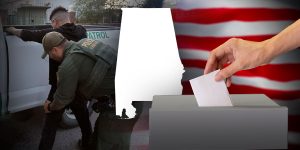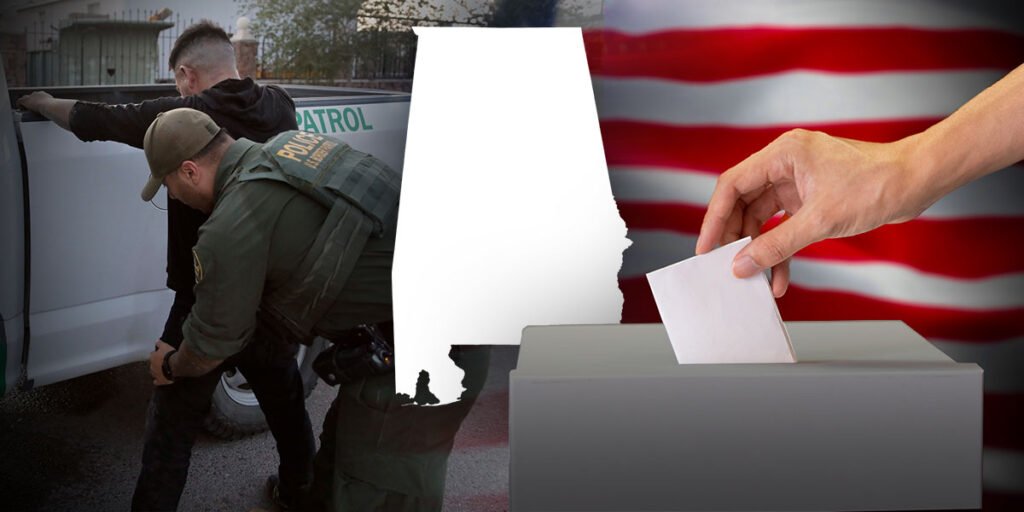
After the conclusion of the state legislative sessions in 2025, Governor Kay Ivey signed two bills on Monday aimed at bolstering the Trump administration’s crackdown on illegal immigration.
These measures are also intended to reduce the incentives for individuals to live illegally in Alabama.
One of the bills, SB158, seeks to strengthen the state’s illegal immigration laws as well as regulations related to voting by non-citizens. The second bill, SB63, mandates that law enforcement agencies collect and provide fingerprints and DNA samples from detained illegal immigrants.
“Alabama is taking action to safeguard our communities and enhance public safety and election integrity,” Governor Ivey remarked. “These bills address gaps in voter ID law while improving law enforcement’s capacity to identify illegal immigrants with criminal records.”
SB158, introduced by Senator Will Burfoot (R-Pike Road), bans the use of foreign driver’s licenses for voting purposes in Alabama. Previously, these licenses had not been explicitly excluded as valid voter ID.
Wes Allen, the Secretary of State in Alabama, expressed appreciation for the new legislation.
“I’m really thankful for Senator Will Burfoot and Representative Tredaway for pushing SB158 through,” Allen stated. “This Act ensures a common-sense approach to election integrity that protects every vote in Alabama.” He also acknowledged the efforts of other lawmakers who supported the bill, saying it will help secure future elections.
Another bill, SB63, introduced by Senator Lance Bell (R-Riverside), compels law enforcement to collect and submit fingerprints and DNA from detained illegal immigrants to enhance biometric data collection.
“This bill is rooted in an incident from a few years back in Talladega County. An individual was on trial, and there was confusion around his identity. DNA checks confirmed he was tied to a murder case in California,” Bell explained during the Senate discussions. “With an optimized DNA database, we can solve many crimes, and this is another step toward improving our existing systems.”
Both bills received bipartisan support during the legislative process.







